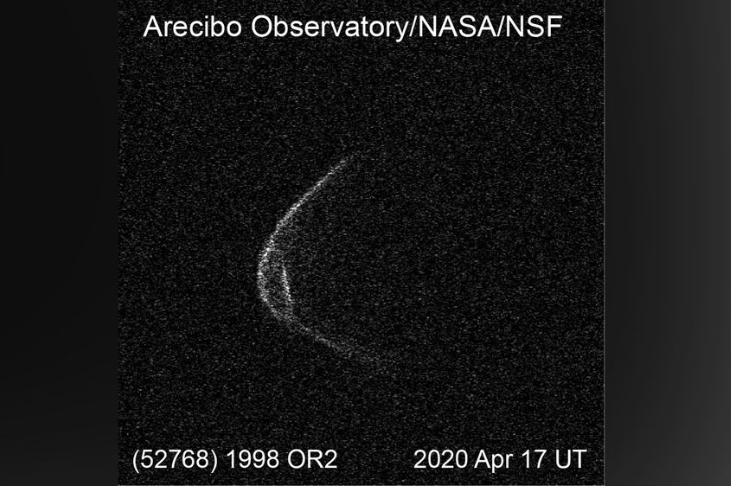Four kilometre-wide asteroid to pass Earth in the ‘potential hazard’ zone tonight

A giant asteroid will pass hazardously close to Earth tonight.
The asteroid will come within about 6.2 million kilometres from Earth.
Astrophysicist and cosmologist from the Australian National University, Dr Brad Tucker, said it sounds far away, but it’s perilously close.
“It’s called a potential hazardous asteroid,” he told 3AW’s Tom Elliott.
“Anything that’s within seven and a half million kilometres, and 150 metres or bigger, we classify as a certain type so that it gets extra attention.”
Thankfully, astronomers assure the asteroid won’t hit Earth.
Dr Tucker said if the asteroid, which is four kilometres in diameter, were to hit Earth “it would be fairly catastrophic”.
For comparison, the asteroid that wiped out the dinosaurs is believed to have been between 10 kilometres and 50 kilometres in diameter.
“So it’s not as big as that, but still a big piece of rock!,” Dr Tucker said.
But it’s not just how close the asteroid is to Earth that’s a concern.
“We also worry if it hits the moon,” Dr Tucker said.
“If it smacks the moon it could change the surface of the moon, it could change the orbit of the moon.
“That immediately changes our tides, it even slightly changes our days.”
Press PLAY below for more.
Have you been hearing about asteroid 1998 OR2’s close approach on April 29? Rest assured that this asteroid will safely pass Earth by 3.9 million miles/6.2 million km. Have other questions about #asteroids and #planetarydefense? Ask them using #askNASA! pic.twitter.com/a3WhttAoED
— NASA Asteroid Watch (@AsteroidWatch) April 14, 2020
Image: Arecibo Observatory/NASA/NSF















